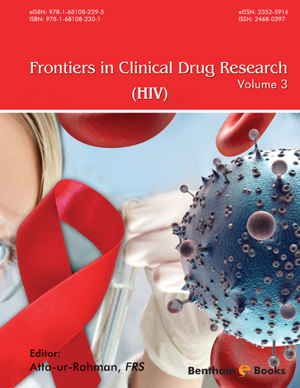Abstract
Human Immunodeficiency Virus (HIV) is a retrovirus which affects mainly the host’s immune system along with other systems. Discovered in 1983, HIV created a havoc because of its high mortality due to opportunistic infections and AIDS related carcinoma. The pandemic caused by HIV was due to its easy transmission through blood, blood products, unprotected sex, sharing of needles among intravenous drug abusers and mother to foetus etc. Initially no drug or vaccine was available and the first antiretroviral drug zidovudine was approved for clinical use in 1987. Gradually different classes of antiretroviral drugs have been developed. With use of monotherapy, drug resistance in HIV developed fast due to mutation. In 1996, three studies reported that triple therapy effectively halted the replication of HIV and 60-80% reduction in HIV related deaths, illness and hospitalization, with this, the era of HAART (Highly Active Antiretroviral Therapy) began. HAART is actually Combination Antiretroviral Therapy (CART) and now has become the standard of care. Though HAART does not cure HIV, it stops HIV from replication and transmission to others. In September, 2015, Revised WHO Guidelines for global HIV treatment, has recommended the immediate initiation of ART at the time of diagnosis which has revolutionized HIV treatment. Now with HAART, the person infected with HIV can expect a normal to near normal life expectancy which is really a boon to mankind.
Keywords: Antiretroviral drugs, Combination therapy, Drug resistance, HAART, HIV replication cycle, Monotherapy, Pandemic of AIDS, Post exposure prophylaxis, Pre-exposure prophylaxis, Revised WHO Guidelines 2015.






















